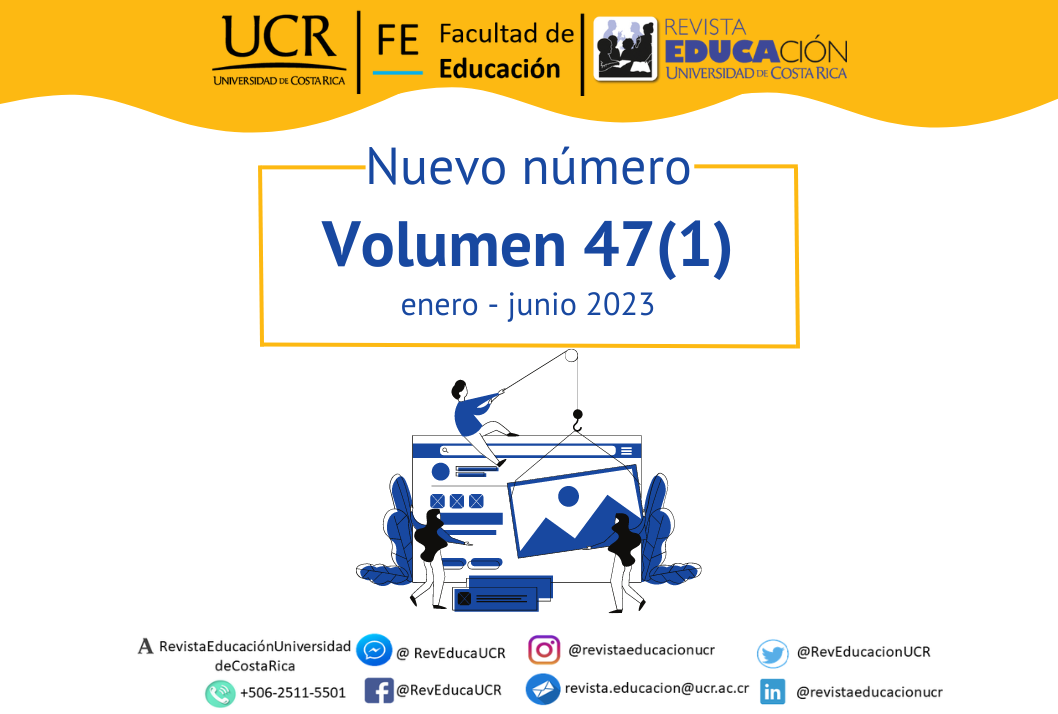Abstract
This paper aims to address the teaching-learning processes of writing at the university from the perspective of critical academic literacy (Cassany and Castellà, 2010; Cassany, 2015; and Barton & Hamilton, 2004). This question is addressed based on the investigator's experience as a professor of education teachers who study at the National Pedagogical University (UPN), in the Bachelor's Degree in Preschool Education and the Master's Degree in Basic Education. This research suggests that the problem lies in the fact that writing practices are not encouraged in the university institution, this is because their character and epistemic potential are not considered; in other words, it is not believed that knowledge is also built and transformed in writing processes. Currently, the teaching of writing in educational institutions does not start from an approach that deals with generating an identity of authorship in their students, or that allows them to position themselves from their speeches in front of their reality, it does not even consider writing as a means to generate and transform knowledge. Although the implementation of individual actions from the teachers' practices is relevant, the institutional ones are more so; for example, to restructure the educational programs so that from the curricular the processes of critical academic literacy are emphasized. Some questions that guide this research are: what problems regarding academic literacy do basic education teachers who study undergraduate and postgraduate studies at the National Pedagogical University face? How have they faced these difficulties in their professional career as a higher education teacher? And, what suggestions can be made to improve the writing processes of university students?
References
Barton, D. y Hamilton, M. (2004). La literacidad entendida como práctica social. En V. Zavala, M. Niño-Murcia y P. Ames (Eds.) Escritura y sociedad. Nuevas perspectivas teóricas y etnográficas. (pp.109-141). Red para el desarrollo de las Ciencias Sociales en el Perú. https://www.estudiosdelaescritura.org/uploads/4/7/8/1/47810247/zavala_et_al_2004_escritura_y_sociedad.nuevas_perspectivas.pdf
Bereiter, C. y Scardamalia, M. (1992). Dos modelos explicativos de los procesos de composición escrita. Infancia y aprendizaje, 58, 43-64. https://dialnet.unirioja.es/ejemplar/5449
Cardinale, L. (2006). La lectura y la escritura en la universidad. Aportes para la reflexión desde la pedagogía crítica. Revista Pilquen, 8(3), 1-5 https://dialnet.unirioja.es/servlet/articulo?codigo=3055578
Carlino, P. (2002). Enseñar a escribir en la universidad: ¿Cómo lo hacen en Estados Unidos y por qué? Uni-pluri/versidad, 2(2), 57-67. https://revistas.udea.edu.co/index.php/unip/article/view/13168/11823
Carlino, P. (2005). La experiencia de escribir una tesis: contextos que la vuelven más difícil. Anales del Instituto de la Lingüística, 24, 41-62. https://www.aacademica.org/paula.carlino/196.pdf
Carlino, P. (2007). ¿Qué nos dicen la investigaciones internacionales sobre escritura en la universidad?. Cuadernos de Psicopedagogía, 4, 21-40. https://www.aacademica.org/paula.carlino/131.pdf
Carlino, P. (2008). Concepciones y formas de enseñar escritura académica: un estudio contrastativo. Signo y seña, (16), 71-117. https://www.aacademica.org/paula.carlino/202.pdf
Carlino, P. (2013). Alfabetización Académica. Diez Años Después. Revista Mexicana de Investigación Educativa, 18(57), 355-381. https://www.comie.org.mx/revista/v2018/rmie/index.php/nrmie/article/view/250/250
Cassany, D. (2015). Literacidad Crítica: Leer y escribir la ideología. https://www.researchgate.net/publication/251839730_Literacidad_critica_leer_y_escribir_la_ide
Cassany, D. y Castellà, J. (2010). Aproximación a la literacidad crítica. Perspectiva, Florianópolis, 28(2), 353-374. https://doi.org/10.5007/2175-795X.2010v28n2p353
Castelló, M., Corcelles, M., Iñesta, A., Bañales, G. y Vega, N. (2011). La voz del autor en la escritura académica: Una propuesta para su análisis. Revista Signos, 44(76), 105-117. https://www.researchgate.net/publication/262594200_La_voz_del_autor_en_la_escritura_academica_Una_propuesta_para_su_analisis
Jiménez, A. (2022). Escribir en la Universidad: Un bordado Fino. UPN. https://editorial.upnvirtual.edu.mx/index.php/publicaciones/colecciones/horizontes-educativos/679-escribir-en-la-universidad-un-bordado-fino
Molina, M. y Carlino, P. (2013) Escribir y argumentar para aprender: las potencialidades epistémicas de las prácticas de argumentación escrita. Texturas, 13(1-13), 16-32. https://www.aacademica.org/paula.carlino/62.pdf
Ochoa, L. (2009). La lectura y la escritura en las tesis de maestría. Forma y Función 22(2), 93-119. http://www.redalyc.org/articulo.oa?id=21916691005
Ramírez, A., Correa, L. y Barrios, E. (2017, 20-24 de noviembre). La enseñanza de la composición escrita en las Unidades de la UPN: El caso de la escritura colaborativa [Ponencia]. XV Congreso Nacional de Investigación Educativa (COMIE), San Luis Potosí México. https://www.comie.org.mx/congreso/memoriaelectronica/v14/doc/1675.pdf
Villaseñor, V. (2013). Hacia una didáctica de la escritura académica en la universidad. Rencuentro. Análisis de problemas universitarios, (66), 91-101. https://reencuentro.xoc.uam.mx/index.php/reencuentro/article/view/829/829
Comments

This work is licensed under a Creative Commons Attribution-NonCommercial-NoDerivatives 3.0 Unported License.
Copyright (c) 2023 Revista Educación - Journal of Education



